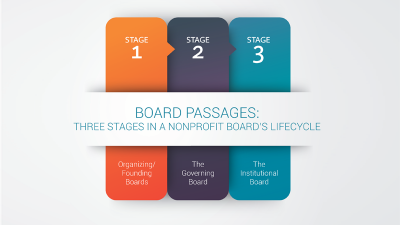当今社会部门的领导一如既往地具有挑战性。随着一代长期的高管人员从机构领导角色中稳步入学,员工,董事会和代表来自社会部门组织的各个方面以及我们最关心的社区 - 努力努力确定前进的途径,以有效消除最持久的途径社会问题并建立肯定的支持网络,从而加强了这个国家的社会结构。
也许比最近历史上的任何其他时间都多,包括政府,非营利组织和慈善部门在内的民间社会正在重新审视结构其机构的基本前提,确定其价值,并从字面上证明其存在是合理的。
关于权力,公平和民主的对话,以及主导的文化规范,政策和实践的影响,促进某些团体的优势以及征服他人的优势,仍然是我们集体经验的核心。在许多方面,领导者认为社会剥夺的历史,并想知道如何以公平,正直和积极的影响在多方面的选区群体中这样做。
在考虑如何实现多元化社会的更大社会问题时,地理社区得出相同的结论:非营利委员会目前存在的非营利委员会并没有很好地以必要的技能,意志或意志,或注意所有社区蓬勃发展所需的复杂性。
The Purpose-Driven Leadership framework invites a field response that challenges conventional ideas of board leadership to shift away from a primary focus on the preservation of organizational status, position and power toward a more expansive consideration of how the organization’s status, position and power can be leveraged both to advance the core purpose of the organization and to generate optimal positive impact for the group of similarly-focused organizations operating throughout the philanthropic landscape.
阅读有关的全文目的驱动的领导由Marcus Walton撰写的Boardsource。


